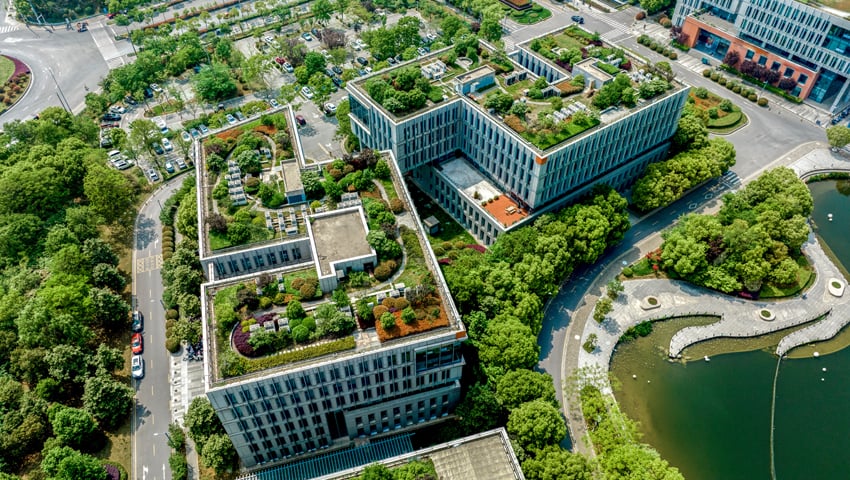As another winter comes to an end and the debate remains on how the country can ride out extreme weather events, the Royal Botanic Garden Edinburgh (RBGE) has announced a £500,000 programme to spearhead research into providing resilience for our towns and cities.
The five-year Plants with Purpose initiative, which will be officially launched in spring, sets out to implement the research institute’s unique blend of scientific and conservation horticulture expertise to assess how society can more effectively utilise garden plants to absorb flash flood water, moderate extreme temperatures in built-up areas and provide better conditions for key pollinators. Funding was provided through a legacy bequest.
Plans are in hand to use its own four sites around Scotland as living laboratories for the project. And, while working towards government adaptation targets, it is believed the research programme can potentially help promote economic growth by encouraging increased productivity and jobs as knowledge and trade practices evolve.
Underscoring the need for this level of research, Raoul Curtis-Machin, RBGE Director of Horticulture and Visitor Experience, said, “While we know intuitively that green is good, and that plants are essential for our planet and our lives, we need to find out more about how different plants can tangibly work in the battle to cope with our changing climate.
“Plants are already incorporated into landscape features such as green walls and rooves, rain gardens and stormwater planters. Collectively referred to as blue-green infrastructure and Nature-based Solutions, these are now making differences in towns and cities around the world. As a leading botanic garden and also a visitor attraction, we are perfectly placed to work with a broad spectrum of partners to measure, improve and communicate these traits, to equip individuals, industry and policy makers with the knowledge, tools and skills to use natural solutions to help us adapt to the changing climate.”
The research team is headed-up by RBGE ecologist Dr Chris Ellis, RBGE, who added, “The legacy of traditional urban grey infrastructure is that our cities are ill-prepared to contend with the impacts of heat and extreme weather in our changing climate. Therefore, using traditional infrastructure to engineer our way out of the climate emergency is not always the most efficient path forwards; nature already holds many of the solutions that we can deploy for more sustainable and liveable future cities. Including Nature-based Solutions in our adaptation toolkit makes good sense.”
The Garden’s Nature-based Solutions scientists, Caitlyn Johnstone and Dr Emma Bush will run the Plants with Purpose research programme. Over the next few weeks, they will be engaging in conversation with educators, specialists and industry around the UK. The opinions of local authorities and members of the public will also ensure the research achieves maximum impact in helping mainstream these Nature-based Solutions across Scotland and beyond.
Stressing the case for action without further delay, Caitlyn Johnstone said, “Rapid climate changes are simultaneously fuelling the biodiversity crisis alongside infrastructure and wellbeing challenges for humans. It is too urgent of a situation to address piecemeal. In nature, we have excellent examples of plants acting as integral parts of effective strategies to complex problems. This new programme will give us an opportunity to collect and share data while demonstrating ecosystem solutions in real time, pairing the right plants to the right dilemmas for the good of both humans and nature.”
Emma Bush concluded with a call to action. She said, “We desperately need to make more space for nature in our cities. Designing plants into our buildings and streets can help us soak away excess rainfall, cool and clean our air, and even improve our own health and wellbeing. But, knowing which plants to use where, and how to look after them, can be a challenge. We cannot wait to get stuck into this new research programme and share what we learn with visitors to our Gardens, the wider public and partner organisations.”
